Search the Special Collections and Archives Portal
Search Results
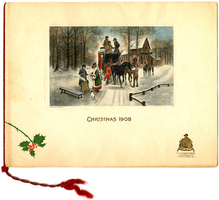
Chittenden Hotel, Christmas dinner menu, Friday, December 25, 1908
Date
Archival Collection
Description
Text
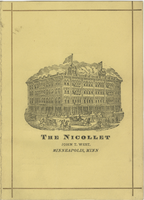
The Nicollet dinner menu, Tuesday, May 18, 1880
Date
Archival Collection
Description
Text
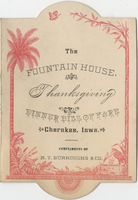
Thanksgiving dinner menu, Fountain House
Date
Archival Collection
Description
Text
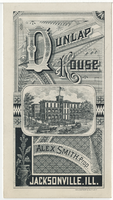
Menu for Opening of Jacksonville Southeastern Rail Road to Centralia, Wednesday, November 7, 1883, Dunlap House
Date
Archival Collection
Description
Text
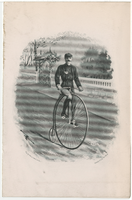
Hotel Brunswick dinner menu, Sunday, October 21, 1883
Date
Archival Collection
Description
Text

Thanksgiving dinner menu, Thursday, November 27, 1879, Pierce's Palace Hotel
Date
Archival Collection
Description
Text
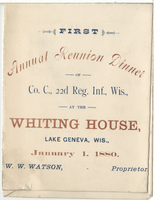
Menu for the First Annual Reunion Dinner of Company C., 22d Regiment Infantry, Wisconsin, January 1, 1880, Whiting House
Date
Archival Collection
Description
Text
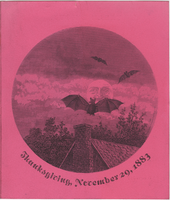
Thanksgiving dinner menu, November 29, 1883, St. James Hotel
Date
Archival Collection
Description
Text
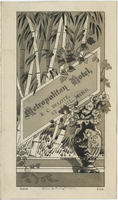
Thanksgiving menu, Metropolitan Hotel
Date
Archival Collection
Description
Text
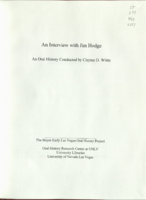
Transcript of interview with Jim Hodge by Claytee White, April 13, 2009
Date
Archival Collection
Description
Jim Hodge describes an active and success filled life in this narrative. Born and raised in the South, Jim enlisted in the Navy at the young age of 17, just as World War II was winding down. His primary job was that of a cook. He became smitten with the life of an entertainer after participating in a play and headed for Hollywood in 1952. It was there that he auditioned for Donn Arden, who organized and directed Las Vegas shows. Though he didn't get the part, he did get hired to be a singer for a show featuring Betty Grable. Thus his career was launched and would span the heyday of Las Vegas entertainment from the 1950s to the 1970s. Jim talks about the people, shows and places that touched his life. He also offers thoughts about the changes in the Vegas entertainment scene as well as shares his relationship with his church over the past 40 years.
Text
